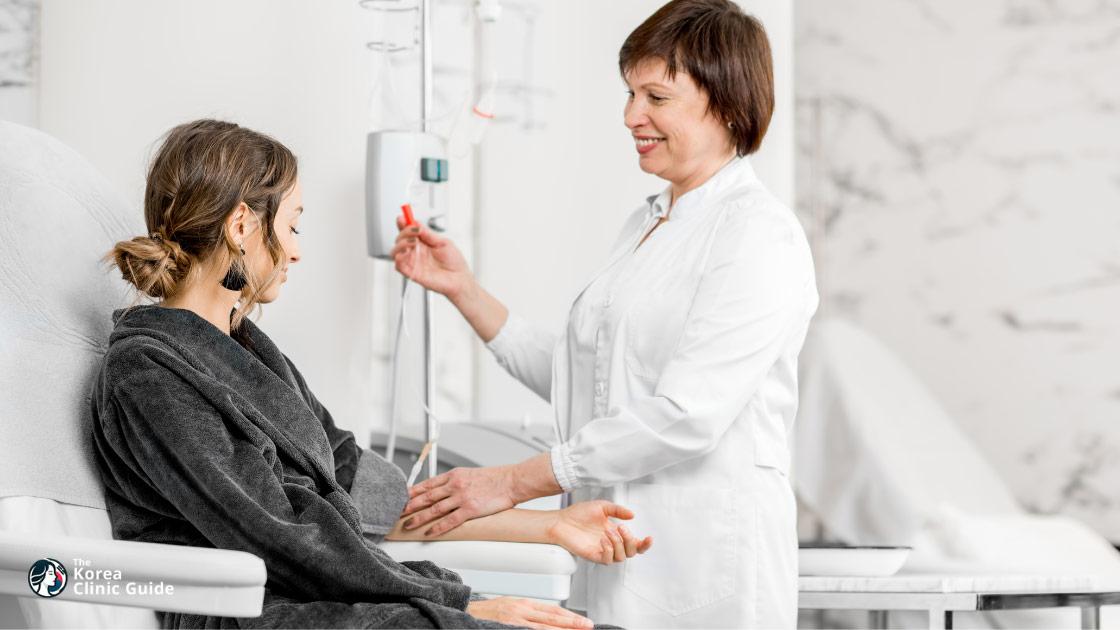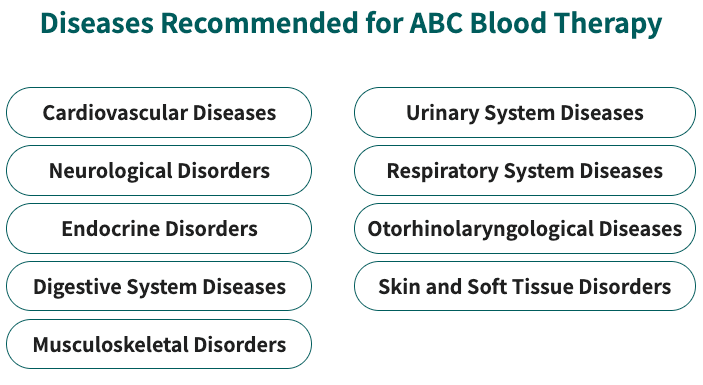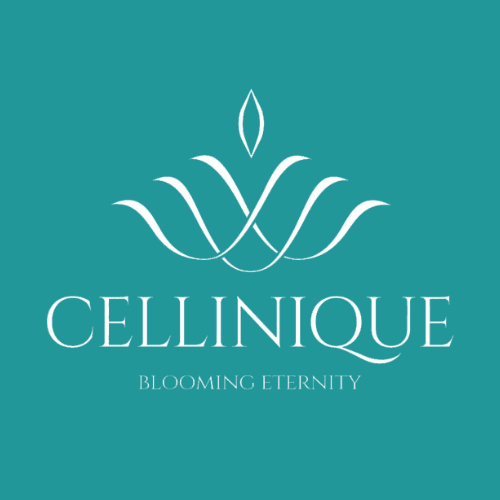Medical Tourism Blog
Blood Purification in Korea | Best Clinics, Costs, Procedure Types & More

Table of contents
- What Is Blood Purification?
- Best Blood Purification Clinics in Korea
- Blood Purification in Korea
- Alternatives to Blood Purification
- Conclusion
Considering treatment in Korea? Everything you need to know e.g. — how to avoid scams, visas, interpreters, recovery tips — in our Medical Tourism Master Guide. Plan with confidence in minutes, not weeks!
Did you know that South Korea is at the frontier of blood purification technology, offering cutting-edge treatments that redefine patient care? This article explores how Korea has emerged as a prominent destination for innovative blood purification therapies, delving into the vital role these procedures play for patients with compromised blood health, as well as highlighting the country's top clinics and advancements that set it apart globally.

What Is Blood Purification?
Blood purification, also known as extracorporeal blood cleansing, is a medical procedure aimed at removing toxins, waste products, and excess substances from the bloodstream. This therapeutic process involves the use of specialized equipment that processes the blood outside of the body before returning it, filtered and clean, back into the patient's circulation. Blood purification is crucial for patients whose kidneys or liver cannot adequately cleanse the blood, or for those with severe infections or autoimmune diseases.

Who Can Benefit from the Procedure?
Blood purification procedures can be beneficial for various patients, including:
- Patients with Cardiovascular Diseases: Individuals needing improved circulation and detoxification.
- Individuals with Urinary System Diseases: Those requiring enhanced filtration and toxin removal.
- Patients with Neurological Disorders: Individuals who may benefit from improved blood flow and oxygenation.
- Individuals with Respiratory System Diseases: Those needing enhanced oxygen delivery and immune support.
- Patients with Endocrine Disorders: Individuals requiring improved metabolic balance.
- People with Otorhinolaryngological Diseases: Those needing enhanced immune function and detoxification.
- Individuals with Digestive System Diseases: Those who benefit from improved detoxification and metabolic function.
- Patients with Skin and Soft Tissue Disorders: Individuals requiring better circulation and healing support.
- Individuals with Musculoskeletal Disorders: Those needing enhanced circulation and detoxification.
Types of Blood Purification Procedures
ABC Blood Purification Therapy
ABC BMT uses ultraviolet rays, magnetic fields, and ionized oxygen to cleanse the blood, enhancing both detoxification and immune function.
Pros:
- Detoxification and Sterilization: Effectively removes toxins and sterilizes blood, preventing disease.
- Immune Enhancement: Strengthens the immune system and improves metabolic function.
Cons:
- Frequency of Treatment: Requires continuous sessions for maximum benefits.
- Complex Equipment: Involves sophisticated technology and expertise.
Pros and Cons of Blood Purification Procedures
Pros
- Comprehensive Health Benefits: Enhances circulation, immunity, and detoxification.
- Disease Prevention: Helps in reducing risks of various diseases and improving overall health.
- Symptom Alleviation: Offers relief from chronic conditions by improving system functions.
Cons
- Resource Intensive: Needs advanced technology and specialized staff.
- Potential Side Effects: May include issues related to procedure invasiveness and frequency.
- Ongoing Commitment: Continuous treatments might be necessary for lasting effects.
Hemodialysis
Hemodialysis is a well-known blood purification procedure mainly used for patients with kidney failure. The process involves circulating the patient’s blood through a dialysis machine equipped with a special filter called a dialyzer to remove waste products and excess fluids.
Pros:
- Effective at removing a variety of toxins and waste products.
- It can be performed regularly as a maintenance therapy for chronic conditions.
Cons:
- Time-consuming requiring multiple sessions per week.
- Can cause side effects such as low blood pressure, muscle cramps, and infections at the access site.
Hemofiltration
Hemofiltration is another type of dialysis that focuses on removing water-soluble toxins by passing the blood through a filter that allows waste products to pass through while retaining essential blood components.
Pros:
- Very efficient in removing large molecules.
- Often used in cases of acute kidney injury.
Cons:
- Requires continuous treatment, often applicable in Intensive Care Units (ICU).
- High cost and complexity of the equipment involved.
Hemoperfusion
Hemoperfusion involves passing the patient’s blood through a column containing adsorbent material, such as activated charcoal or resins, which binds and removes toxins.
Pros:
- Highly effective in removing toxins, especially in cases of poisoning.
- Quick and efficient for emergency detoxification.
Cons:
- Limited to specific types of toxins.
- Risk of clotting or blood loss during the procedure.
Plasmapheresis
Plasmapheresis, or plasma exchange, replaces the patient’s plasma (the liquid component of blood containing toxins) with a substitute fluid or donor plasma. This method is particularly effective for patients with autoimmune diseases.
Pros:
- Can rapidly reduce circulating antibodies or immune complexes.
- Useful in treating a variety of autoimmune and neurological conditions.
Cons:
- Requires frequent sessions as it provides temporary relief.
- Can lead to complications such as allergic reactions, infections, and electrolyte imbalances.
Continuous Renal Replacement Therapy (CRRT)
CRRT is a slow and continuous process that mimics natural kidney function. It is particularly used in critically ill patients who cannot tolerate the rapid fluid and waste removal typical of traditional dialysis.
Pros:
- Gentle and well-tolerated by unstable or critically ill patients.
- Provides continuous toxin removal and fluid balance.
Cons:
- More complex and resource-intensive.
- Requires continuous monitoring and skilled healthcare providers.
Pros and Cons of Blood Purification Procedures
Pros
- Life-Saving: Can be critical in acute and life-threatening conditions.
- Improved Quality of Life: Regular treatments can help manage chronic conditions, reducing symptoms and enhancing well-being.
- Toxin Removal: Efficiently removes a broad range of harmful substances from the blood.
Cons
- Resource Intensive: Requires specialized equipment and trained personnel.
- Side Effects: Potential risks include infections, allergic reactions, and complications arising from invasive procedures.
- Frequent Sessions: Many procedures require ongoing treatments, which can be burdensome for patients.
Best Blood Purification Clinics in Korea
Listed below are the best clinics in Korea:
| Clinic Name | Key Features | Special Techniques |
|---|---|---|
| Cellreand Clinic | Premier destination for blood purification in Korea, luxe recovery rooms | Advanced ABC BMT: Premium Blood Purification Treatment combining ultraviolet rays, magnetic fields, and ionized oxygen |
Cellreand Clinic
Cellreand Clinic in Gangnam stands out as the premier destination for blood purification in Korea, leveraging the advanced ABC BMT: Premium Blood Purification Treatment. This cutting-edge procedure uniquely combines ultraviolet rays, magnetic fields, and ionized oxygen to revitalize the bloodstream, making it a transformative option for patients seeking an enhanced health profile. By introducing ionized oxygen and subjecting the blood to UVC rays and magnetic fields, the ABC BMT process effectively removes impurities from red and white blood cell surfaces, leading to detoxified, freshly energized blood. This purification not only supports the body's healing capabilities and reduces disease risk but also fortifies the immune system by improving both humoral and cellular immunities. Beyond blood purification, Cellreand's state-of-the-art facility, characterized by luxe recovery rooms akin to high-end hotel accommodations, ensures a comfortable and rejuvenating experience for patients. The clinic's comprehensive approach to health includes supplementary treatments focused on immune boosting, cholesterol reduction, and improved circulation, which collectively promote overall wellness and staving off aging—underscoring its position as a leader in integrative health solutions.
You can check out their website here: Cellreand Clinic Website
Blood Purification in Korea
South Korea is a leading destination for medical procedures, renowned for its advanced technology, skilled professionals, and patient-focused care. Blood purification is one such treatment offered at the highest standards.
Cutting-Edge Facilities
Korea boasts top-tier medical facilities equipped with the latest blood purification technology, such as ultraviolet purification systems and state-of-the-art machines. These facilities often exceed global healthcare standards, providing exceptional care and efficiency.
Expertise and Professionalism
Korean medical professionals are highly trained, often with international certifications. Specialists in fields like nephrology bring a wealth of experience, ensuring patients receive expert care. Their professionalism and attention to detail offer patients confidence and peace of mind.
Comprehensive Consultations
Patients undergo thorough consultations to tailor treatments to their needs. This includes detailed medical histories, lab tests, and physical exams. The personalized approach ensures optimal treatment plans, with providers explaining procedures, risks, and outcomes in detail.
Patient-Centered Care
Korean healthcare emphasizes patient comfort and convenience. Facilities are designed to alleviate anxiety, offering modern amenities and pleasant surroundings. Language barriers are minimized through translation services and bilingual staff, enhancing the experience for international patients.
Post-Treatment Support
Robust post-treatment care includes follow-up consultations, dietary guidance, and ongoing support. This integrated approach ensures patients maintain optimal health after leaving the facility.
Cultural and Touristic Experience
Beyond medical care, Korea offers a rich cultural experience. Patients and families can explore historical sites, vibrant culture, and culinary delights. Many institutions offer concierge services for sightseeing, making the medical journey a memorable adventure.
Accessibility and Affordability
Korea's healthcare system is accessible and relatively affordable compared to Western countries. Competitive pricing and high-quality care make it a top choice for international patients. Many hospitals offer medical tourism packages, including accommodation and transportation.
Choosing South Korea for blood purification provides access to superior medical care while enjoying the country's rich culture and hospitality.
Alternatives to Blood Purification
When it comes to maintaining a clean and healthy bloodstream, it’s essential to focus on supporting the body’s natural detox systems, namely the liver and kidneys. Here are three effective alternatives to blood purification that can help optimize the function of these vital organs:
1. Increase Water Intake
Water plays a crucial role in helping the kidneys filter out waste from the blood. The kidneys rely on an adequate water supply to help them eliminate toxins from the body effectively. By ensuring you drink enough water, you can support the kidneys in their natural detoxification process.
Recommendations:
- Aim to consume around eight glasses of water per day. This amount can vary based on individual factors such as body weight, activity level, and overall health.
- Monitor your urine color; it should be light yellow or colorless, indicating proper hydration.
- Adjust your water intake based on physical activity or in hotter climates to prevent dehydration.
2. Adopt a Nutrient-Rich Diet
A diet rich in nutritious foods can significantly support liver and kidney health, indirectly aiding in blood purification. Including specific types of fruits, vegetables, and other foods known for their beneficial properties can be particularly effective.
Key Foods:
- Cruciferous Vegetables: Broccoli, cabbage, and cauliflower are high in antioxidants and have been shown to reduce the risk of kidney cancer.
- Blueberries: Incredibly high in antioxidants, blueberries can protect the liver from damage.
- Cranberries: Help prevent bacteria from adhering to the urinary tract, thus supporting kidney function.
- Garlic: Contains anti-inflammatory properties and helps to lower cholesterol and blood pressure, reducing kidney strain.
- Apples: Rich in pectin, a type of soluble fiber that can help regulate blood sugar levels, indirectly protecting kidney health.
- Fish (like salmon and tuna): High in omega-3 fatty acids, which can lower blood pressure and triglyceride levels, supporting overall organ health.
3. Incorporate Beneficial Herbs
Herbs can also play a significant role in supporting liver and kidney function. However, it is essential to use them wisely and consult with a healthcare provider, especially if you have existing health conditions.
Helpful Herbs:
- Ginger: May help improve blood sugar control and treat nonalcoholic fatty liver disease (NAFLD). Ginger can be consumed fresh, powdered, or as a tea.
- Green Tea: Drinking green tea can reduce liver fat deposits and potentially ward off liver cancer. The optimal benefits are observed with at least four cups a day.
- Hibiscus: Roselle, a species of hibiscus, acts as a diuretic and may assist with kidney filtration. It can be enjoyed as a tea.
- Parsley: Animal studies suggest parsley can help protect the liver and increase urinary volume, aiding in waste removal.
- Dandelion: Acts as a diuretic, helping to increase the amount of water moving through the kidneys, which supports waste filtering. Dandelion tea is a common way to consume it.
By focusing on these alternatives, you can enhance the natural functioning of your liver and kidneys, thereby maintaining clean and healthy blood without the need for intensive blood purification methods.
Conclusion
In conclusion, South Korea has established itself as a leader in the field of blood purification, combining advanced medical technology with a comprehensive healthcare infrastructure to provide world-class treatment options. The country's dedication to innovation and research has facilitated significant advances in dialysis, hemoperfusion, and other blood purification methods, ultimately improving patient outcomes and quality of life. Furthermore, the accessibility and affordability of these treatments underscore Korea's commitment to public health, making it an exemplary model in addressing complex medical needs through cutting-edge solutions. As global demand for effective blood purification continues to grow, South Korea's pioneering efforts in this field are likely to inspire and influence healthcare systems worldwide.








